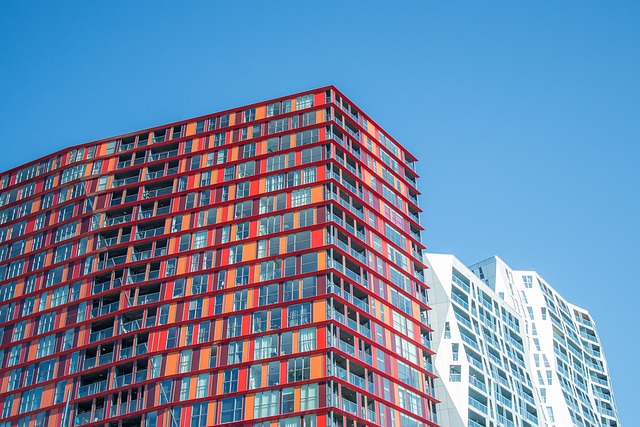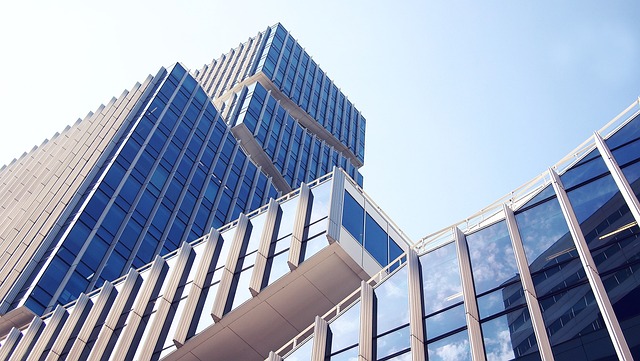Mold in commercial settings poses significant risks to air quality and occupant health, leading to the implementation of strict mold regulations for businesses. These regulations mandate inspection protocols, remediation standards, and lease disclosure requirements. Commercial tenants should adopt proactive measures, including regular inspections in humid areas, to protect their health, safeguard investments, and avoid legal complications. Understanding mold remediation responsibilities in lease agreements is crucial for tenant protection, as landlords are obligated to provide safe, habitable spaces. Preventative measures like proper ventilation, regular cleaning, and prompt addressing of moisture issues can further empower tenants to protect their interests under mold regulations for businesses.
In the world of commercial real estate, understanding tenant rights regarding mold is paramount. This article delves into the intricate dynamics between landlords and tenants, focusing on how mold impacts lease agreements under current legal frameworks. We explore mold remediation responsibilities, preventative measures, and strategies for tenants, providing a comprehensive guide to navigating these critical issues. By understanding mold regulations for businesses, tenants can protect their health and ensure fair practices in their commercial spaces.
- Understanding Mold and Its Impact on Commercial Spaces
- Tenant Rights Under Current Legal Frameworks
- Mold Remediation Responsibilities in Commercial Leases
- Preventative Measures and Strategies for Tenants
Understanding Mold and Its Impact on Commercial Spaces

Mold, a natural yet potentially harmful growth, has significant implications in commercial spaces. Beyond its aesthetic concerns, it can impact indoor air quality, leading to health issues for occupants and increased costs for business owners. In response, mold regulations for businesses have been established to ensure safe environments and mitigate financial burdens. These regulations often mandate specific mold inspection protocols, remediation standards, and disclosure requirements in commercial leases.
Understanding the extent of mold problems is crucial. It can develop in various forms, from visible patches on walls to hidden growth behind drywall or within HVAC systems. Commercial tenants should be vigilant about addressing any signs early on. Regular inspections, especially in humid environments or areas with water intrusion, are essential under mold regulations for businesses. Proactive measures not only protect tenant health but also safeguard their investment and avoid legal complexities associated with mold-related disputes.
Tenant Rights Under Current Legal Frameworks

In many jurisdictions, tenants have specific rights and protections regarding mold issues in commercial leases. Current legal frameworks often mandate that landlords maintain a safe and habitable environment for their tenants. This includes proactive measures to prevent mold growth and timely remediation if it occurs. Tenants have the right to be informed about any known mold problems within the premises and to take part in decision-making processes related to cleanup and prevention strategies.
The specific rights can vary based on local mold regulations for businesses, but generally, tenants can expect to be consulted during the cleanup process, given access to affected areas, and assured that appropriate measures are taken to ensure their health and safety. Failure by landlords to comply with these provisions may result in legal action from tenants, including potential breaches of lease terms and even claims for compensation or termination of the lease agreement.
Mold Remediation Responsibilities in Commercial Leases

In commercial leases, mold remediation responsibilities are a crucial aspect of tenant rights and protection under mold regulations for businesses. When a tenant discovers mold in their rental space, it’s essential to understand who is accountable for addressing the issue. Typically, lease agreements specify who is responsible for managing and mitigating mold-related issues—whether it’s the landlord or tenant. Many states have adopted specific mold regulations that govern these situations, mandating that landlords provide safe and habitable spaces.
Tenants should carefully review their lease terms to determine their rights and obligations regarding mold. If a lease holds the tenant accountable for mold remediation, they may still be protected by broader mold regulations for businesses, which often require landlords to maintain proper ventilation, humidity control, and regular inspections to prevent mold growth. It’s essential to document all instances of visible mold, communicate concerns to the landlord, and, if necessary, involve professionals to assess and remediate the issue, ensuring compliance with both lease agreements and applicable mold regulations.
Preventative Measures and Strategies for Tenants

Tenants in commercial spaces have a right to expect and demand safe, healthy, and habitable premises. To protect themselves from potential issues like mold, they should be proactive and implement preventative measures. This includes ensuring proper ventilation and air circulation within the leased space by keeping windows open (when weather permits) and using air purifiers. Regular cleaning and maintenance are also crucial; promptly addressing water leaks or moisture issues and regularly inspecting areas prone to mold growth can help prevent significant problems.
Tenants should familiarize themselves with local mold regulations for businesses, such as inspection requirements and disclosure rules. Staying informed about industry-specific guidelines related to indoor air quality and environmental health ensures compliance and provides a framework for holding landlords accountable. Additionally, tenants can negotiate specific clauses in their lease agreements that address mold prevention, remediation, and liability, empowering them to take proactive steps to protect their health and business interests.














